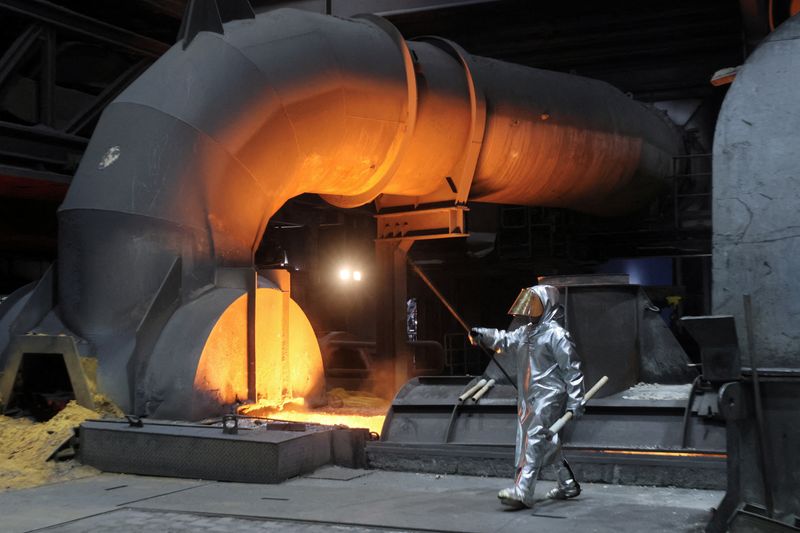BERLIN (Reuters) - The downturn in Germany's manufacturing sector deepened at the start of the third quarter as goods producers recorded sharper declines in new orders, factory gate prices and output in July, a survey showed on Tuesday.
The HCOB final Purchasing Managers' Index (PMI) for manufacturing, which accounts for about a fifth of Germany's economy, fell to 38.8 in July from 40.6 in June.
July's reading, the sixth consecutive monthly decline and the lowest since May 2020, confirmed a flash estimate and was well below the 50 level that separates growth from contraction.
"These are ugly figures," said Cyrus de la Rubia, chief economist at Hamburg Commercial Bank AG, particularly new orders, which saw one of the most pronounced falls in roughly three decades, and employment, which dropped into contraction territory for the first time since 2021.
However, the economist also noted that the rates of decline in input costs as well as output prices fell at the fastest rate since the global financial crisis.
Expectations for the business outlook fell for the third month in a row to their lowest since November, signalling increasing pessimism as companies cite concerns about a sustained slowdown in demand.

"The risks for the German economy as a whole running into trouble during the second half of the year have clearly increased," said de la Rubia.
The German economy stagnated in the second quarter of 2023, missing forecasts for modest growth, as weak purchasing power, higher interest rates and low factory order books all weighed on the euro zone's largest economy.